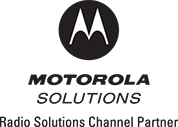Why Digital Migration Is Essential To Your Business
Licensed, professional two-way radios have revolutionized communications for decades and continue to empower millions of people today. From schools to seaports, construction sites to convention halls, they are synonymous with reliability, durability and convenience.
Now professional radio is making a big leap forward — the move from analog to digital. Regulatory pressures and real-world needs are driving greater spectrum efficiency. Some legislators are even mandating that no new designs of two-way radios can be certified unless they have digital capability. This means that practically everyone in the future will use digital.
Digital radio offers many advantages over analog, including improved voice quality with greater coverage, better privacy, better battery life and more. That's why it's critical to consider digital migration now - so when you're ready to upgrade, you'll choose a system with the greatest benefits for the long term.

Better Voice Quality
Hear And Be Heard Clearly Without Noise, Static or Distortion
When you use a normal analog radio, every sound that's picked up by the microphone is transmitted. If there's a lot of background noise, it can be very difficult to understand you. Digital technology is purer. The software focuses purely on your voice, paying no attention to the machine clatter or the crowd noise around you. The result is exceptional voice clarity.
Radio interference creates static on an analog radio and makes the conversation less intelligible. Voice gets garbled and the message must be repeated. Because a digital radio has automatic error correction, it rebuilds voice sounds and maintains the clarity of the voice, even if a signal is badly corrupted. And since speech is digitally-encoded, you benefit from smarter capabilities, such as advanced software algorithms that can deliver clear voice in the most extreme conditions.
Better Capacity
Get Double The Calls From Every Channel
When it comes to spectrum efficiency, nothing matches digital technology. Digital is so bandwidth-efficient, it can accommodate two completely separate "channels" in one 12.5 kHz channel. As well as making more efficient use of precious radio spectrum, this also minimizes your licensing costs, especially as your business grows. With digital, you can immediately double the capacity of your existing 12.5 kHz channel and enable many more people to communicate without worrying about privacy or interference.
Better Coverage
Your Voice Stays Strong And Clear To The Ends Of Coverage
While all radio signals grow fainter as they go further out, the voice quality on analog radios degrades much more quickly. At the far edge of coverage, even though signal strength is similar, digital voice will be clear and intelligible while analog voice will be garbled and masked by static.
Digital radios have built-in error correction to eliminate static and make sure voice calls are heard clearly over a greater range. There's no interference, background noise or distortion. Digital maintains voice integrity to the very ends of the coverage area.
Better Battery Life
Communicate Longer On A Single Charge
Battery life is a big challenge for all mobile devices. But because digital technology is much more energy-efficient than analog, it reduces battery drain and improves talk time. Count on your battery to last up to 40% longer when you use a digital radio.
While both analog and digital radios consume about the same power in standby mode, once you start transmitting, digital radios are dramatically more efficient. This is critical for frequent and heavy users who depend on their radios to last the entire shift and can't stop to replace batteries or recharge radios.
When you choose Motorola, you choose generations of industry-leading quality, reliability and performance behind every radio. We have created two-way radios since the 1930s and continually innovate as the recognized leader in digital two-way radio technology. Our flexible portfolio of radios delivers the best of both worlds: great voice communications today and a path to even better digital voice communications when you're ready.
Fleet Dispatch Network:
- Exclusive Frequencies
- Unlimited Airtime
- 100% Coverage
Get your FREE demo Now!
Consultants are Available:Monday - Friday
 ↑
↑
Two-Way Radio Systems and Public Safety Equipment in the San Francisco Bay Area